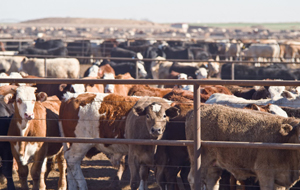Bipartisan Senate Bill Introduced to Combat Superbugs
WASHINGTON — Senator Dianne Feinstein (D-CA) today introduced the Preventing Antibiotic Resistance Act, a bipartisan bill that would eliminate certain antibiotic-related practices that contribute to the rise of drug-resistant bacteria and endanger human health. The legislation is co-sponsored by Senators Susan Collins (R-ME), Kirsten Gillibrand (D-NY), Jack Reed (D-RI), Barbara Boxer (D-CA) and Maria Cantwell (D-WA).
 Eight classes of antibiotics that are needed to treat sick people are also given to healthy food animals to spur growth and compensate for overcrowded and unsanitary conditions. The practice is so extensive that, according to the U.S. Food and Drug Administration, or FDA, drugmakers sold a record 29.9 million pounds of antibiotics for use in food animal production in 2011 — four times what was sold to treat human illness. The proposed legislation would restrict the usage of antibiotics in food animals unless they are sick.
Eight classes of antibiotics that are needed to treat sick people are also given to healthy food animals to spur growth and compensate for overcrowded and unsanitary conditions. The practice is so extensive that, according to the U.S. Food and Drug Administration, or FDA, drugmakers sold a record 29.9 million pounds of antibiotics for use in food animal production in 2011 — four times what was sold to treat human illness. The proposed legislation would restrict the usage of antibiotics in food animals unless they are sick.
"We commend Senators Feinstein, Collins, Gillibrand, Reed, Boxer and Cantwell for introducing the Preventing Antibiotic Resistance Act," said Laura Rogers, director of the Pew Charitable Trusts' initiative to reduce antibiotic overuse on industrial farms. "Their legislation is balanced yet comprehensive: It eliminates the use of medically important antibiotics for food production purposes but allows these drugs to be administered to sick animals and to keep them from infecting others. In addition, it does not change the way farmers can use those antibiotics that are not also important in human medicine."
On March 14, Representative Louise Slaughter (D-NY) introduced a similar piece of legislation called the Preservation of Antibiotics for Medical Treatment Act of 2013 (H.R. 1150).
In the United States alone, resistant bacteria are responsible for tens of thousands of deaths, hundreds of thousands of hospitalizations, and tens of billions of dollars in health-care costs each year. .
There is a significant and growing body of evidence to justify the passage of these bills. Officials from FDA, the U.S. Department of Agriculture, and the Centers for Disease Control and Prevention have testified before Congress that there is a definitive link between the use of antibiotics in food animal production and drug-resistant infections in humans. The American Medical Association, the American Academy of Pediatrics, and other leading scientists and medical experts, including four Nobel laureates, warn that the use of these drugs in food animals creates new strains of dangerous, antibiotic-resistant bacteria. These experts are supported by more than 130 studies conducted over the past four decades, including new research indicating that antibiotic overuse contributes to diseases not traditionally associated with food consumption, such as drug-resistant urinary tract infections and virulent and contagious strains of methicillin-resistant Staphylococcus aureus, also known as MRSA.
In the United States alone, resistant bacteria are responsible for tens of thousands of deaths, hundreds of thousands of hospitalizations, and tens of billions of dollars in health-care costs each year.






